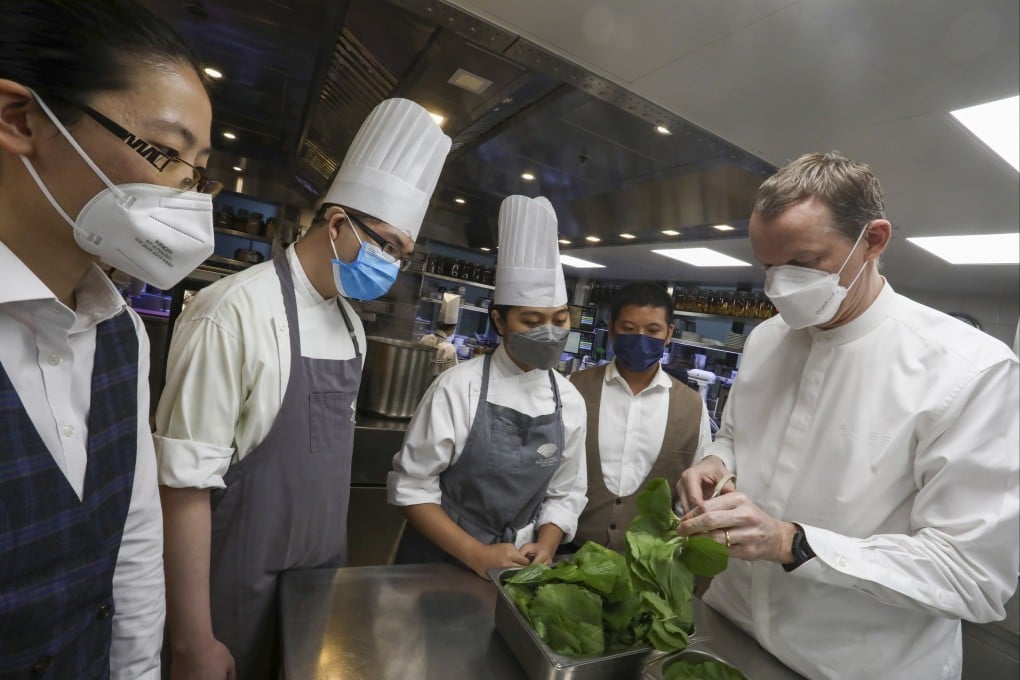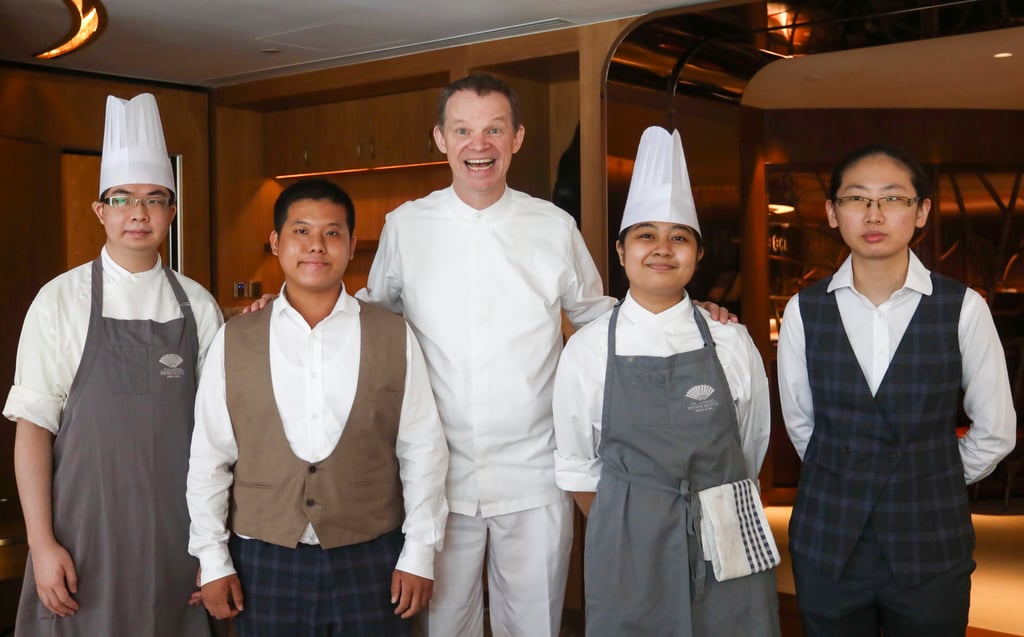People with disabilities gain from internships in kitchen, restaurants at five-star hotel in Hong Kong
- Gu Shi-yi, one of four interns at the Landmark Mandarin Oriental under a training programme for people with disabilities, now knows he wants a kitchen job
- He and fellow trainees in the hotel’s pastry kitchen and restaurants are praised for their hard work, focus and concentration by its culinary director

When Daphne Jerelyn Esteban’s parents found out that she’d be working at The Landmark Mandarin Oriental in its pastry department, they were overwhelmed with joy.
To hear that their teenage daughter had got a summer internship at one of Hong Kong’s most prestigious hotels would be a proud moment for any parent, but this piece of news was especially sweet for the family.
That’s because Esteban, who is 17 years old, grew up with autism, speech impairment and mild intellectual disability. As a result, she has struggled with communication throughout her life, she says.
“Some people won’t understand me because it’s too hard to speak properly.”

Despite these challenges, the budding pastry chef is now interning at The Landmark Mandarin Oriental in Central, through a programme jointly run by the social enterprise Cookie Smiles and the Shine Skills Centre (SSC), a member of the Vocational Training Council that offers training programmes for people with disabilities.
Through this trial work-placement scheme, called the “Shining Star Programme”, graduates of SSC courses such as bakery and cafe service, catering service, and fast food operation have the opportunity to work at a five-star hotel or an established food and beverage outlet.